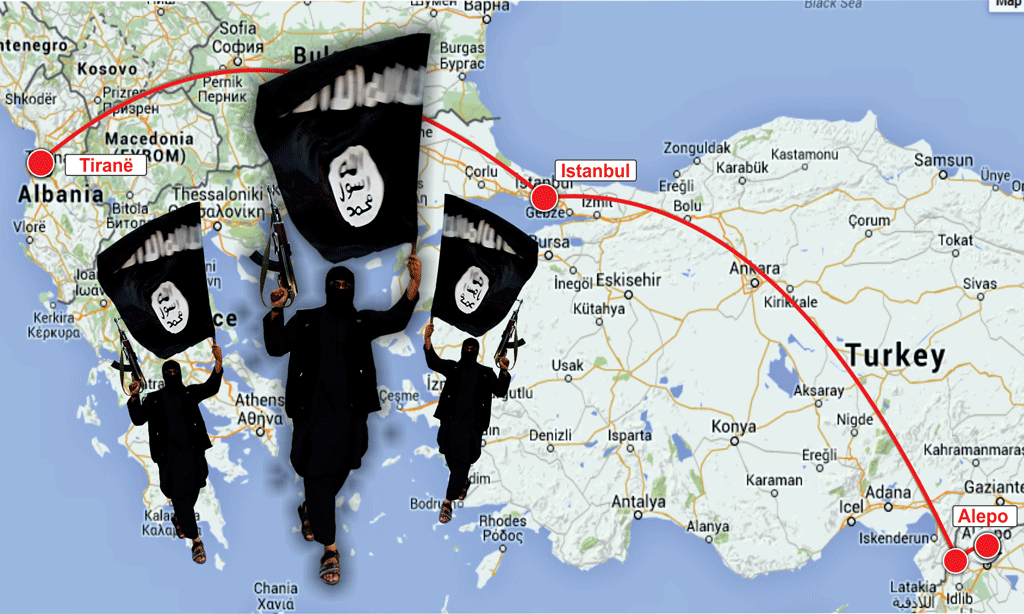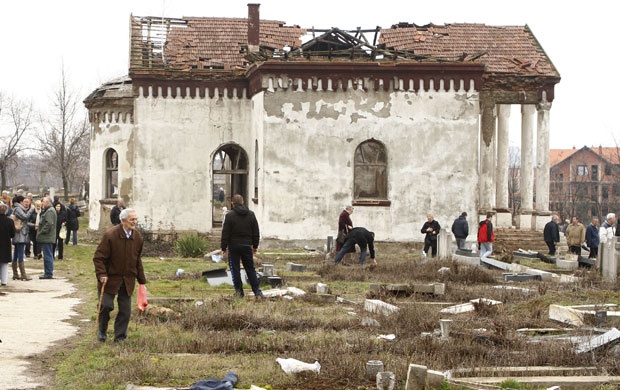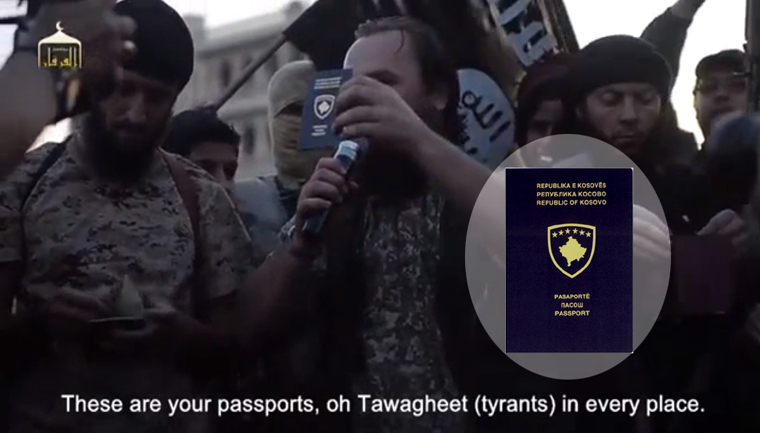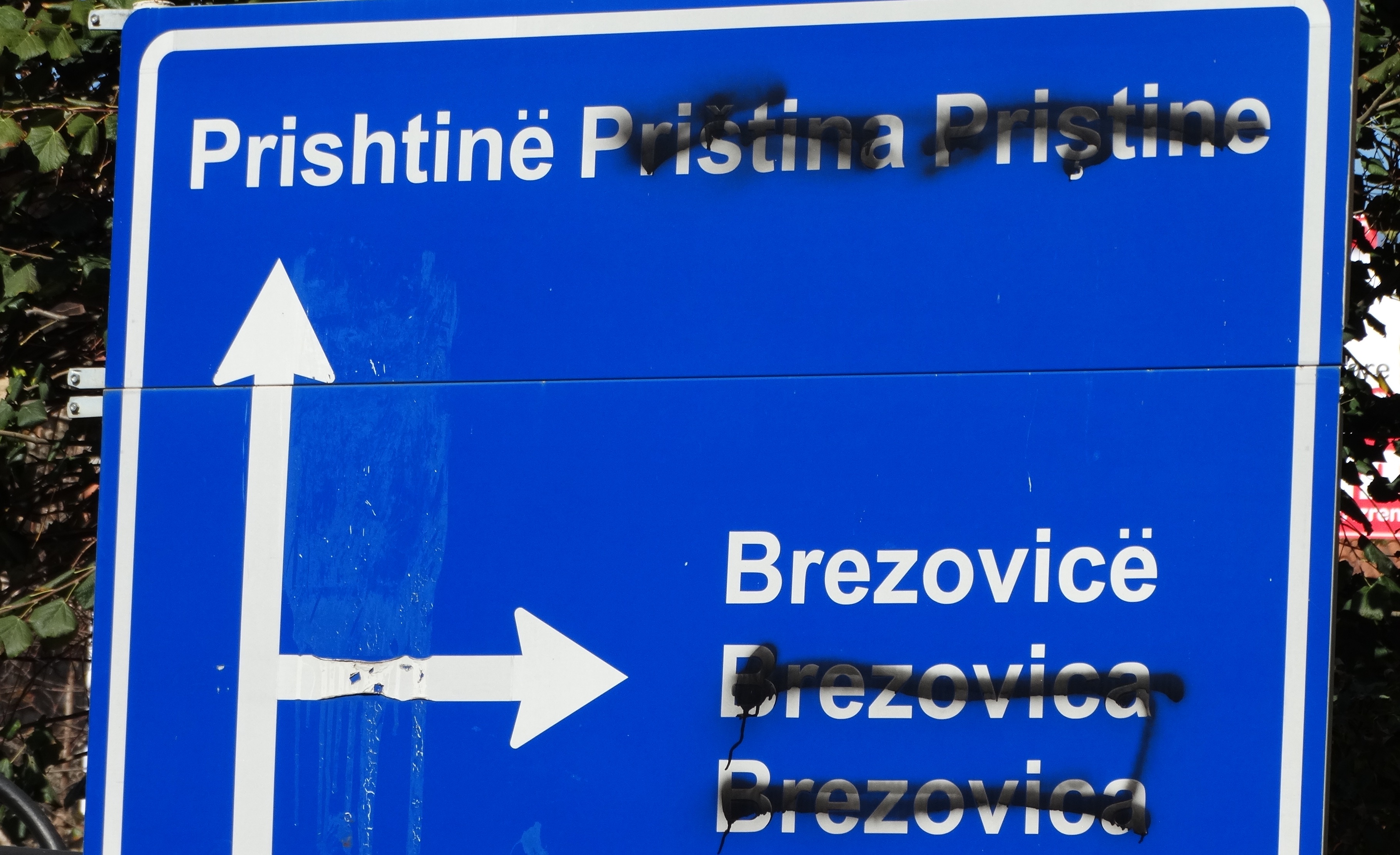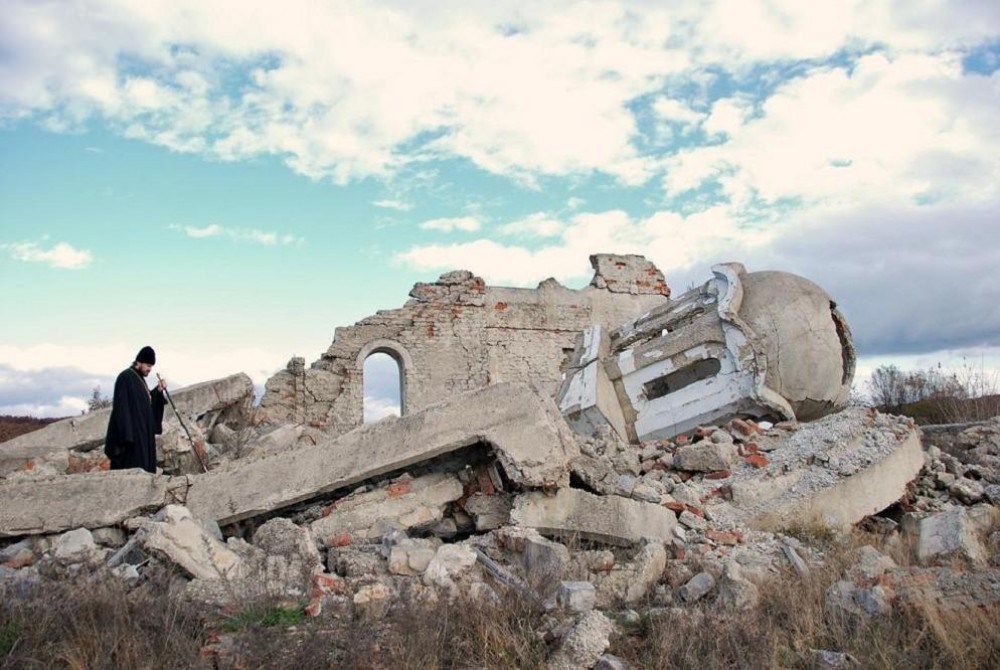
Views: 2313
The recent arrest of 40 alleged Islamic radicals in Kosovo together with the arrest of one of the Kosovo Imams suspected of being an inspirer of jihad in the region brought serious questions about the radicalisation of Islam and terrorism in Kosovo, in the Balkans and in Europe. Even though the issue of Kosovo Albanian volunteers or mercenaries fighting alongside the anti-Bashar forces in Syria and supporting the radical leadership of the Islamic State (earlier the Islamic State of Iraq and Syria) has been present in the public debate in Kosovo for at least a year, the debate itself was rather shallow and trivial.
Finally after 1999, and especially after the 2008 independence, Kosovo Albanian Islam once again became private and non-political. The evolution makes the Kosovo Islam very difficult to frame and control, the changes are happening at the kitchen tables inside homes, just as – in Jeffrey Goldfarb’s words – the dismantling of the Soviet bloc was run by “the politics of small things” initiated in discussions around kitchen tables in Warsaw, Prague and Bucharest.
The growth of importance of religion in Kosovo is happening casually en passant and on a very grassroots level; and so is the social base for recruitment of potential Islam fighters. Several years ago, the holy month of Ramadan was unnoticeable in Kosovo’s capital, Pristina. Today the group of people fasting from dawn to dusk is clearly visible in the city. The usually full cafeterias and restaurants in the main boulevard, boulevard of Mother Theresa, are empty during the day, the city becomes peaceful and quite until the Iftar dinner time comes. The status of traditional Albanian national heroes like Mother Theresa or Skandenberg is now being questioned, as they were Catholics not Muslims. Unlike just a few years ago covered women and men with a beard wearing pants above his ankles is a common sight nowadays in Pristina, not to mention the conservative cities and regions such as Kaçanik or Hani i Elezit.
It’s becoming common practice to pay people in their initial phase of religiosity for regular visits to mosques, wearing a hijab or a beard. Several hundreds of euros are frequently donated to parents, or even more preferably to single mothers, for their daily expenses or education of their kids as a payoff for making the children follow the ahadith, the traditions.
As fasting and hijabs are clearly apparent, the recruitment of volunteer freedom fighters to Syria and the Islamic State remains out of sight. The recruitment and indoctrination is happening deep in the society, mostly in its lower classes and among people who are often unaware of the process they are participating in. Recent arrests show that the authorities are capable of identifying individuals who have already been actively involved in the Middle East conflicts, but they do very little in order to fight the cause of the problem. In March 2014, the Kosovo Assembly passed a draft law on the prohibition of Kosovo citizens of joining armed conflicts outside Kosovo; however the dissolution of the Parliament in May, early elections held in June and the inability of the political parties to form a ne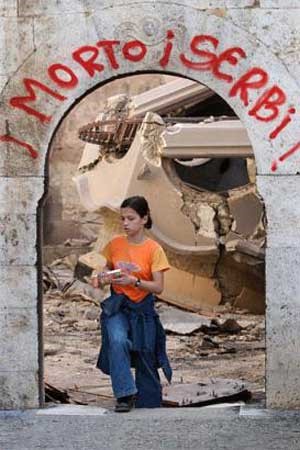 w government undermine the future of the bill.
w government undermine the future of the bill.
The specific number of Kosovo Albanians fighting in Iraq and Syria is unknown, the authorities claim to have information about several dozen of them, but most analysts suggest that the number definitely exceeds 100. Until now 16 of them died in combat. The ones arrested last week are accused of supporting the Islamic State and the al-Nusra Front, and together with the arrests a significant number of weapons, explosives and electronic equipment have been confiscated. Even though these are men who constitute the vast majority of “freedom fighters”, women are sent from the Balkans to the Middle East in order to “fulfil their duty in Jihad Al-Nikah – thesex jihad”.
The recruitment process itself is rather flexible and also therefore difficult to track down. The crucial part of the process is the selection of potential candidates and identification of individuals vulnerable and susceptible to influence. Even though the economic situation in Kosovo is bad and the unemployment rate is almost 50 per cent of the whole population, and over 70 per cent among the youth, the economic promises seem not to be a decisive factor.
The bad economic situation should be regarded, rather, as an indirect factor which creates an advantageous environment for recruitment. The lack of opportunities, lack of occupation and simply an excess of free time are some of the reasons that push young people into the radicals’ arms. Another crucial reason – an identity crisis – is a more complex one. Kosovo Albanians, or Kosovars, experience trouble with defining who they are. They are not emotionally attached to the blue and yellow Kosovo flag, so they use the Albanian red flag with a silhouetted black double-headed eagle in the centre. They are Albanians but they feel distinguished from the Albanians in Albania. They fought for independence and sovereignty, but they feel their country is run by foreign embassies. Religion offers a clear identity and a sense of belonging.
There is still a strong belief in the Kosovo society that religion and state should be separated. When the Macedonian Albanians were protesting in July against the authorities in Skopje, the protests enjoyed strong support from the Kosovo Albanians, but faced a critique regarding the strong religious component of the protest, including the use of the green Muslim flags and organisation of the demonstrations in front of mosques. At the same time, terrorism has a long tradition in Kosovo and it is difficult to distinguish Islamic terrorism from the general phenomenon of terrorism in the country executed by paramilitary organisations or other politically driven groups.
 The unexpectedness of the developments is personified by the self-declared commander of the ethnic Albanian fighters in the Islamic State, Lavdrim Muhaxheri, who used to work in Camp Bondsteel, the Kosovo base for the US Military, and later joined the American mission in Afghanistan. Today, he is fighting in the Middle East, streaming his call for jihad in Arabic on YouTube and posting photos of him cutting off a man’s head on Facebook.
The unexpectedness of the developments is personified by the self-declared commander of the ethnic Albanian fighters in the Islamic State, Lavdrim Muhaxheri, who used to work in Camp Bondsteel, the Kosovo base for the US Military, and later joined the American mission in Afghanistan. Today, he is fighting in the Middle East, streaming his call for jihad in Arabic on YouTube and posting photos of him cutting off a man’s head on Facebook.
So far, this is a phenomenon in the Kosovo society. The role of the new government and the international community in Pristina will be to not let it turn into a widespread societal process of religious radicalisation. “This land has been created by warriors and poets, and various gods,” sang Bajaga, a famous Yugoslav singer, back in 1993. There is a space in Kosovo for various gods, but there cannot be space for extremism.
Originally published on 2014-08-24
About the author: Ida Orzechowska is a Ph.D. candidate at the Institute of Political Science of the University of Wroclaw, Poland, obtaining a degree in political science. Her main research interests relate to international security, the Western Balkans and conflict studies.
Source: Global Research
Origins of images: Facebook, Twitter, Wikimedia, Wikipedia, Flickr, Google, Imageinjection & Pinterest.
Read our Disclaimer/Legal Statement!
Donate to Support Us
We would like to ask you to consider a small donation to help our team keep working. We accept no advertising and rely only on you, our readers, to keep us digging the truth on history, global politics and international relations.
[wpedon id=”4696″ align=”left”]
FOLLOW US ON OUR SOCIAL PLATFORMS



